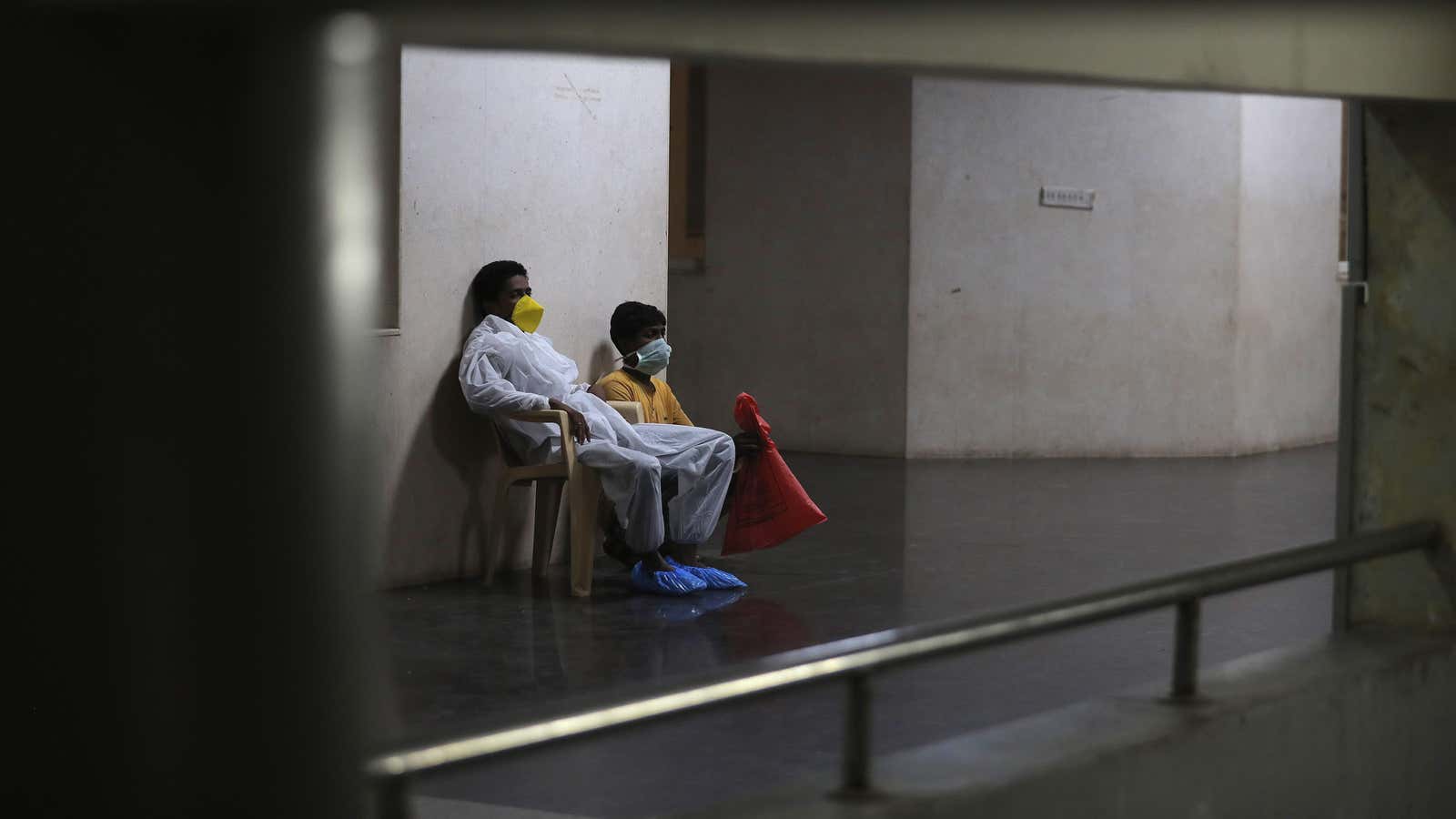One of India’s primary weapons against the Covid-19 pandemic is a 123-year-old colonial legislation, once used to imprison freedom fighters.
The Epidemic Diseases Act of 1897 gives special powers to state governments. India’s Narendra Modi government has already advised states to use it to make their coronavirus advisories more stringent.
Karnataka, where 29 people have tested positive so far, implemented the legislation on March 11. It was the first Indian state to do so. The Covid-19-specific regulations, the state announced, will be in place for a year.
Haryana, in the north, declared coronavirus an epidemic under this Act on March 12.
Maharashtra, which has the highest recorded cases of coronavirus, has since enforced the Act, along with Delhi and Goa.
This law enables states to ban public gatherings, ask schools and large institutions to stop functioning, and issue advisories to companies to explore work-from-home models. It also gives the state a right to penalise media organisations spreading misinformation.
The law is one of India’s last colonial-era legislations.
Colonial vestige
The Epidemic Diseases Act (pdf) was enacted on Feb. 4, 1897, to stop the spread of the bubonic plague outbreak in Bombay (now Mumbai). It gave the British government in India powers to restrict people from gathering in large numbers.
The legislation simply states its objective as “better prevention of the spread of dangerous epidemic disease.” Section 2 of the Act, confers states with the following special powers:
Power to take special measures and prescribe regulations as to dangerous epidemic disease.
(1) When at any time the [State Government] is satisfied that [the State] or any part thereof is visited by, or threatened with, an outbreak of any dangerous epidemic disease, the [State Government], if [it] thinks that the ordinary provisions of the law for the time being in force are insufficient for the purpose, may take, or require or empower any person to take, such measures and, by public notice, prescribe such temporary regulations to be observed by the public or by any person or class of persons as [it] shall deem necessary to prevent the outbreak of such disease or the spread thereof, and may determine in what manner and by whom any expenses incurred (including compensation if any) shall be defrayed.
(2) In particular and without prejudice to the generality of the foregoing provisions, the [State Government] may take measures and prescribe regulations for—
(b) the inspection of persons travelling by railway or otherwise, and the segregation, in hospital, temporary accommodation or otherwise, of persons suspected by the inspecting officer of being infected with any such disease
It also allows the central government to “take measures and prescribe regulations for the inspection of any ship or vessel leaving or arriving at any port in (the territories to which this Act extends).”
The law was last used in 2018 to prevent the spread of cholera in a Gujarat village. It has also been invoked in cases of dengue and malaria in 2015 in Chandigarh and H1N1 influenza in 2009 in Pune.
Scope for misuse
While it helps contain epidemics, the Act can also be misused.
In 1897, for instance, freedom fighter Bal Gangadhar Tilak was imprisoned for 18 months under this Act for his newspaper Kesari‘s anti-establishment coverage of the plague, according to The Indian Express newspaper.
In a 2013 paper, medical scholars Binod K Patro, Jaya Prasad Tripathy, and Rashmi Kashyap questioned the efficacy of the Act, given its vague language and non-specific definitions. “Epidemic Act 1897 is silent on the definition of dangerous epidemic diseases…Apart from isolation or quarantine measures, the Act is mum on the legal framework of availability and distribution of vaccine and drugs and implementation of response measures. There is no explicit reference pertaining to the ethical aspects or human rights principles during a response to an epidemic,” they observed.
The scholars also pointed to a contemporary law like the National Disaster Management Act of 2005 (NDMA) as being more valid and purposeful. “The lawmakers can draw a leaf out of the NDMA as it clearly defines all the terms and has an explicit description of all the implementing measures and agencies to be instituted in the event of any emergency,” they wrote.
The administration in the union territory of Jammu & Kashmir, for instance, has invoked the NDMA to shut all public transport in Ramban district as a precautionary measure against Covid-19.
